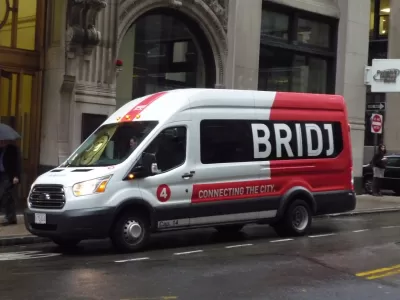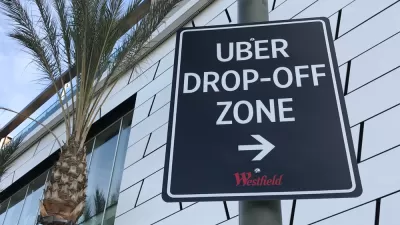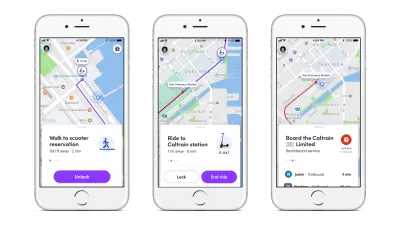Bridj's bet that it could, well, bridge ride-hailing and public transit didn't pay off. Lacking new investment, the company is shutting down.

Inspired by the success of Uber and Lyft, Bridj attempted to disrupt public transit with a van-based model. Linda Poon writes, "Bridj works by allowing users to request a ride in one of its 14-seat vans whose routes are calculated by an algorithm so that riders are picked up and dropped off in the most efficient manner. Each ride costs passengers between $1.50 and $7, depending on what’s agreed upon with the city."
The startup saw some early success by partnering with Ford. "It shortened trips for thousands of Boston commuters, it eventually extended limited service to Washington, D.C., and Austin, Texas, and it got Ford Motors Co. and the Kansas City Area Transit Authority to pilot a year-long experiment in Missouri."
Now, as the company shuts its doors, the question is why couldn't Bridj catch on. "Many didn't use the app beyond the first 10 free rides, despite the fact that the service attracted a largely younger and wealthier crowd—which raised the question of whether Bridj was accessible for the low-income population." Marketing was also lacking, and the company had trouble identifying where shuttles would be needed most.
FULL STORY: Bridj Collapses After Just 3 Years

Planetizen Federal Action Tracker
A weekly monitor of how Trump’s orders and actions are impacting planners and planning in America.

Map: Where Senate Republicans Want to Sell Your Public Lands
For public land advocates, the Senate Republicans’ proposal to sell millions of acres of public land in the West is “the biggest fight of their careers.”

Restaurant Patios Were a Pandemic Win — Why Were They so Hard to Keep?
Social distancing requirements and changes in travel patterns prompted cities to pilot new uses for street and sidewalk space. Then it got complicated.

Platform Pilsner: Vancouver Transit Agency Releases... a Beer?
TransLink will receive a portion of every sale of the four-pack.

Toronto Weighs Cheaper Transit, Parking Hikes for Major Events
Special event rates would take effect during large festivals, sports games and concerts to ‘discourage driving, manage congestion and free up space for transit.”

Berlin to Consider Car-Free Zone Larger Than Manhattan
The area bound by the 22-mile Ringbahn would still allow 12 uses of a private automobile per year per person, and several other exemptions.
Urban Design for Planners 1: Software Tools
This six-course series explores essential urban design concepts using open source software and equips planners with the tools they need to participate fully in the urban design process.
Planning for Universal Design
Learn the tools for implementing Universal Design in planning regulations.
Heyer Gruel & Associates PA
JM Goldson LLC
Custer County Colorado
City of Camden Redevelopment Agency
City of Astoria
Transportation Research & Education Center (TREC) at Portland State University
Camden Redevelopment Agency
City of Claremont
Municipality of Princeton (NJ)





























